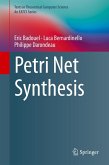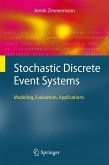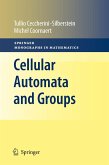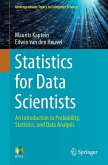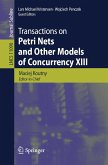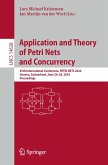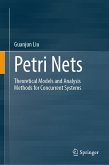Petri nets model concurrent and distributed systems where active components communicate through the production and absorption of various kinds of resources.
Although the dynamic properties of such systems may be very complex, they may sometimes be connected to the static structure of a Petri net. Many properties are decidable, but their complexity may be huge. It is often opportune to restrict oneself to classes of systems, to partial algorithms, and to similar but simpler properties. Instead of analysing a given system, it is also possible to search for a system satisfying some desired properties by construction.
This comprehensive textbook/reference presents and discusses these issues in-depth in the context of one of the most fundamental Petri net models, called place/transition nets. The presentation is fortified by means of many examples and worked exercises.
Among topics addressed:
.In which order may actions may be generated and scheduled?
.What states and configurations may be reached in a concurrent system?
.Which interesting classes of systems can be analysed relatively efficiently?
.Is it possible to synthesise a system of some class from its behaviour?
.How can systems be represented algebraically, compositionally, and concisely?
This unique text, based on introductory as well as on advanced courses on distributed systems, will serve as an invaluable guide for students and (future) researchers interested in theoretical-as well as in practical-aspects of Petri nets and related system models.
Eike Best has been a full professor (now retired) affiliated to Carl von Ossietzky Universität Oldenburg, Germany. Raymond Devillers has been a full professor (now retired) affiliated to Université Libre de Bruxelles, Belgium. The authors have a long record as collaborators in the fields of Petri nets and the semantics of concurrency.
Dieser Download kann aus rechtlichen Gründen nur mit Rechnungsadresse in A, B, BG, CY, CZ, D, DK, EW, E, FIN, F, GR, HR, H, IRL, I, LT, L, LR, M, NL, PL, P, R, S, SLO, SK ausgeliefert werden.



